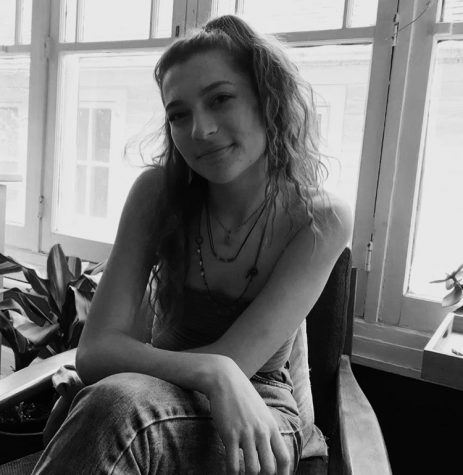Country thunder
Students debate festival’s ethics of attendance
August 28, 2017
Though music festivals typically act as a carefree common ground for all music lovers, country music festival Country Thunder has brought up arguments among Evanston residents.
Country thunder is a four day long music festival that take place in Twin Lakes, WI. It’s become fairly popular among Evanston students over the years. In addition to the music draw, Country Thunder has also acts as a social scene for some, particularly upperclassmen. Though problems in regards to the festival have been evident since the start, a larger debate about them was sparked this summer.
There are a couple fundamental issues within Country Thunder that students are discussing, the biggest being racism.
“There are confederate flags hanging everywhere and there are pro-Trump signs,” senior Maia Robinson said.
“It’s a safe space for white people to say the n-word, they were saying it because they could,” senior Sofia Chaudruc added. “It’s a place for white people to do what they can’t do at home.”
Moreover, Country Thunder acts as a place where people of color feel as though they cannot even attend.
“It’s the definition of straight up privilege,” Robinson said. “People go because they are willing to turn a blind eye to racism. It’s the epitome of white ignorance and privilege.”
This year, student objections were raised in particular to the connection between Country Thunder and U.S. Customs and Border Protection (CBP). Though it has been commonly misconceived that ticket buyers are directly donating to CBP, the money in fact does not go to them. However, there is in fact a recruitment booth and recruitment officers from CBP there in hopes of hiring. CPB made their partnership with Country Thunder official in March of 2017.
Students debating the topic have discussed the morality of white students going, whether it be for music or for social purposes. Some students believe under no circumstance should white people use their privilege to attend the event, while others believe it is okay to go for the music and/or social aspects, that is, if that’s what they are truly there for.
Senior Charlie Lindland believes it’s okay to attend the festival so long as you attempt to educate other concert-goers along the way.
“Open up a conversation with neighbors and explain the logic behind your position,” he suggested.
Chaudruc on the other hand, thinks otherwise. After attending for the first time this year (but leaving halfway through), she believes that Country Thunder goes to show the extremity of white fragility.
In her groundbreaking article, “White Fragility”, published in 2011, social justice educator Robin DiAngelo explains white fragility is the state of intolerance and defensiveness that white people feel from even the smallest amount of racial stress.
“I noticed that Country Thunder created an almost ‘safe space’ for white people and when that space gets threatened, people lash out or get defensive,” Chaudruc says.
Further, Country Thunder has also brought up a debate about the idea of maintaining a liberal identity in Evanston. To many residents, attending Country Thunder, an event with various displays of outward racism, goes against the conventional liberal ways.
Their activism turns off when it’s in the way of a fun time with their friends,” Robinson said. “That’s not okay.”
However, others believe that the one’s liberalism shouldn’t even be associated with whether or not they decide to go to the festival.
“Many people claimed that if a person attended Country Thunder they could no longer title themselves as liberal,” junior Erin Kim said. “By making the word an exclusive title, we are discouraging people from taking part in an important conversation and ultimately from making progress.”
Kim, who claims to stand somewhere between both sides, believes that it’s crucial that rather than attacking one another, people learn from this ongoing debate.
“I think the most we can ask of each other as consumers is to make informed decisions, respect each other’s decisions, and remember how our actions affect others and the overall social environment,” she said.










